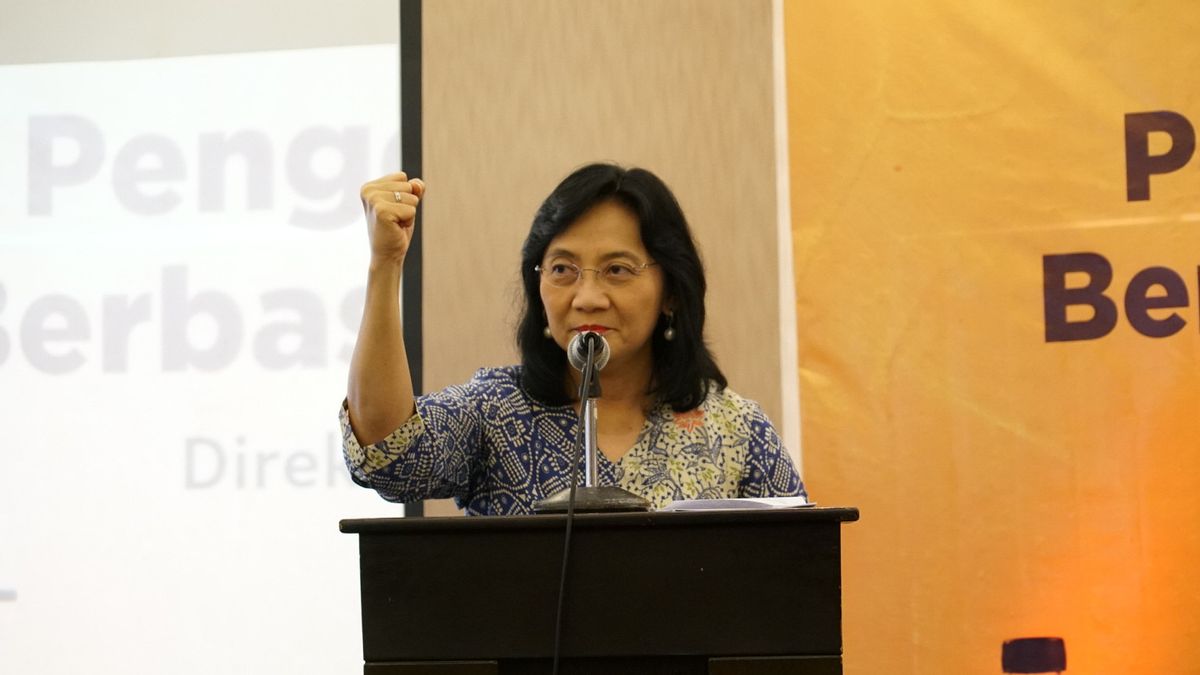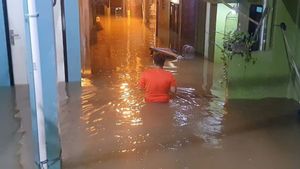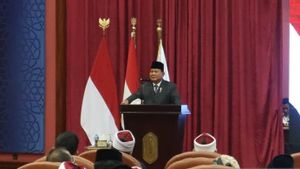JAKARTA - The Ministry of Industry continues to monitor the impact of the COVID-19 pandemic on small and medium industries (IKM) in several areas, including the metal, machinery, electronics and transportation equipment (LMEAA) sectors. This identification effort is in order to formulate strategic policies in the future so that the domestic IKM sector can be more enthusiastic about running its business.
"We are reviewing the impact felt by IKM in three regions, namely the Metal IKM and Automotive Components in Tegal, IKM in Sukabumi Regency and IKM in Bandung Regency," said the Director General of Small, Medium and Miscellaneous Industry (IKMA) of the Ministry of Industry Gati Wibawaningsih in Jakarta, Thursday April 9th.
The Ministry of Industry, through the Directorate General of IKMA, noted that there are 16 IKMs in Tegal that have been affected by the COVID-19 outbreak since early March 2020. The 16 IKMs produce various metal-based products, including two and four-wheeled vehicle components, ship components, agricultural components. , stoves, to heavy equipment components.
The production capacity of most SMIs in Tegal decreased during the COVID-19 pandemic when compared to before the virus broke out. Even so, several other IKMs still maintained their production capacity.
Three of the 16 IKM have laid off their employees due to the impact they have suffered. However, most of the other IKMs maintained their number of employees and changed their working hours to rotate.
The Ministry of Industry is also monitoring the impact of the new corona virus on 209 IKM located in Sukabumi Regency, which consists of a metal casting industry that produces automotive components, medical equipment components, telecommunication components, and electrical installation components. In addition, the machinery industry produces agricultural tools and machines as well as Appropriate Technology (TTG) machines.
"There is also a metal welding industry that produces fences, trellises, canopies, and a forging or blacksmith industry that produces agricultural tools and household utensils," said Gati.
According to data received by the Ministry of Industry, a number of IKMs in Sukabumi District have felt a different impact from the outbreak of the new corona virus, including cessation of production activities due to no orders, termination of labor for some employees, unable to pay bank credit installments, capital money used for daily needs. -day.
So that if the condition continues, it will cause damage to the production machine. In addition, orders have fallen sharply, prices for raw materials have increased and are even predicted to be scarce, as well as delays in order payments.
"IKM in Sukabumi Regency needs assistance in the form of availability of raw materials, orders, and funds to support their business continuity," explained Gati.
Then, for IKM in Bandung Regency, the Directorate General of IKMA monitors 21 IKM which is engaged in producing household appliances, hoes, mild steel, decorative lights, stoves, gas ovens, electric panels, and roof turbine ventilators.
Production for the 21 IKMs experienced a decline, delays, and even terminations due to the absence of orders. However, there are two SMIs whose production is still running normally, namely CV Adam Jaya which produces roof turbine ventilators and KASITech Mandiri which produces stoves. The performance of employees at some IKMs continues to run normally, but some others are dismissed and work from home or work from home (WFH).
The condition of IKM Electronics and Telematics
The Directorate General of IKMA of the Ministry of Industry also collects data by asking IKMs regarding the impact of the COVID-19 pandemic on other IKMs, for example, electronic IKMs that really need access to raw materials because currently raw material prices are starting to rise and are difficult to obtain, it is necessary to plan government support in this case.
In addition, electronic startups that have 3D printers are now switching to producing face shields and making their products free, but they need donations if the raw materials are getting more expensive and hard to get.
The assistance expected from the government is credit relaxation, assistance to pay employee salaries, access to raw materials at rational prices, and the firmness of government policies in breaking the chain of spreading COVID-19 so that the business world can take into account the management strategies that must be implemented.
Meanwhile, the telematics IKM in general continues to operate because software development can be done with WFH. The effect of the COVID-19 pandemic is felt to be making business slow down, because other businesses have also slowed down so that projects are postponed or terminated.
Thus, the need for support from the government includes assistance to pay employee salaries and the firmness of policies to deal with the COVID-19 pandemic so that businesses can run again.
The English, Chinese, Japanese, Arabic, and French versions are automatically generated by the AI. So there may still be inaccuracies in translating, please always see Indonesian as our main language. (system supported by DigitalSiber.id)













